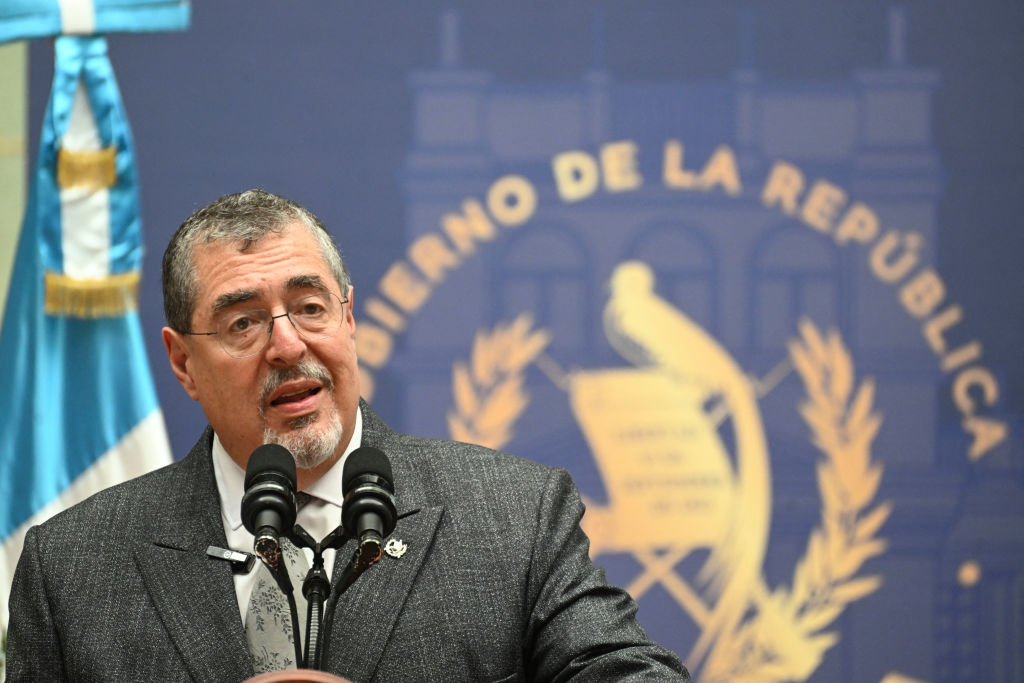Venezuelan Presidential Campaigns Gain Momentum
Venezuelan Presidential Campaigns Gain Momentum
Candidates register this week and prepare for official campaigns to begin next month in an election that sets President Hugo Chávez against a united opposition movement.
With elections scheduled for October 7, Venezuela’s presidential campaigns are heating up as the candidates register and prepare for the official campaigns to begin. June 11 marks the final day for presidential candidates to register with the National Electoral Council (abbreviated to CNE in Spanish) and both candidates held rallies around the symbolic move. Opposition candidate Henrique Capriles Radonski of the Coalition for Democratic Unity (MUD) marched with supporters and registered on Sunday, while President Hugo Chávez of the United Socialist Party of Venezuela (PSUV) appeared at the CNE on Monday. After candidates register, campaign financing begins this month, and official campaigns kick off on July 1.
On June 10, an estimated one million supporters accompanied Capriles on a six-mile march to register at the CNE. Capriles, who won the opposition primary with a record turnout in February, resigned as Miranda state governor last week in order to register his candidacy. “I am nobody’s enemy. I’m the enemy of problems….Capriles will unite Venezuelans,” the candidate said during yesterday’s rally.
Chávez returned to Caracas on May 11 after his latest round of cancer treatment in Cuba, and registered his candidacy on Monday afternoon. As well as declaring June 11 a bank holiday, the president submitted his 2013-2019 government plan to the CNE. Though the state of Chávez’s health is still a matter of speculation, one of the president’s campaign managers said that the PSUV candidate could arrive by “parachute” to the CNE. (In the end, he arrived by truck.) Supporters initially began gathering Monday morning for Chávez’s afternoon registration in what the president called a “day of celebration for the candidacy of our homeland.” During the registration process, Chávez vowed he would respect the election results. At the rally following his registration, he said: "I am sure we will continue undefeated."
Though registration ends this week, official campaigning only begins on July 1, ending October 4. Candidates and political organizations can open their campaign finance accounts on June 19 and must close them beginning October 8. In a CNE workshop held in mid-May to explain campaign finance rules, officials explained that donations can only come from individuals and legal entities within the country, and that no funding can come from public institutions or institutions connected to the state. In addition, donations are forbidden from anonymous donors. Similarly, the country’s Electoral Process law bans advertising paid for with public funds, as well as forbidding both public and private-held media from favoring a candidate.
However, campaign rules have raised questions for both campaigns. The MUD argued recently that some campaign regulations remain unclear, including campaign finance controls and media advertising. Also, a CNE official recently voted against a new voting rule that did not include language about regulating campaign advertising on state-owned media channels. Watchdog group Monitoreo Ciudadano has tracked Chávez’s use of state-owned media for campaign purposes in 2012, saying he “abused his power” by breaking electoral law and using government television to campaign. On June 11, former MUD candidate Leopoldo López alleged that the PSUV used public funds to finance Chávez’s registration rally this week. PSUV leaders accused the opposition of garnering foreign support and funding, though Capriles denied these claims.
In addition to campaign finance and advertising, the CNE has moved to regulate election polls. Because of discrepancies in voter surveys, the CNE passed a new regulation on June 7 that requires surveying institutions to register with the electoral council and to provide methodology and technical information. Numbers vary considerably, though several recent polls give Chávez a 15-point advantage. Another poll released last week by the Venezuelan Data Analysis Institute (also known as IVAD) gave Chávez a 28.5-point lead over Capriles.
Learn More:
- Read an AS/COA Hemispheric Update about the Venezuelan presidential election.
- See the campaign section of Venezuela’s electoral law from the CNE.
- Watch a video of Capriles speaking during the march to the CNE on Sunday.
- Read about Chávez’s campaign registration and election outlook from NTN.






